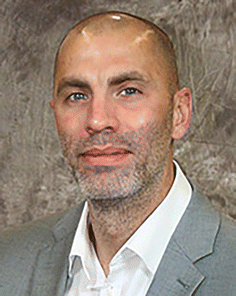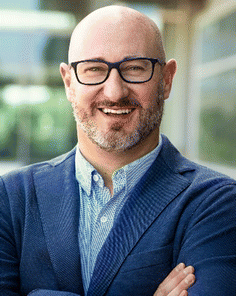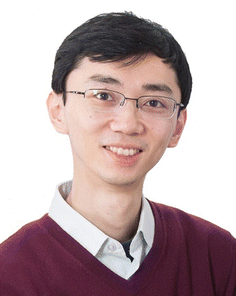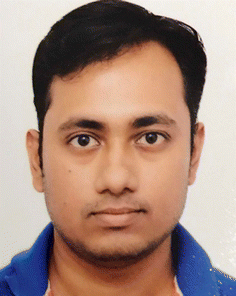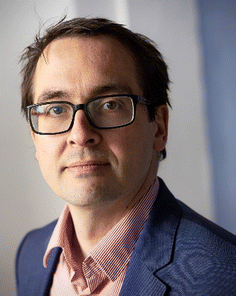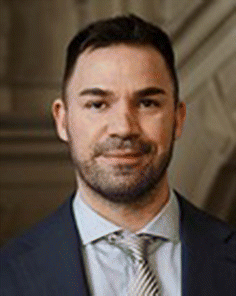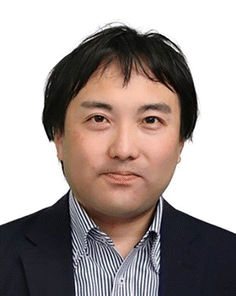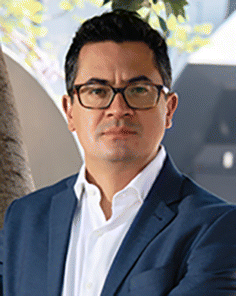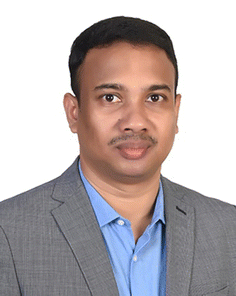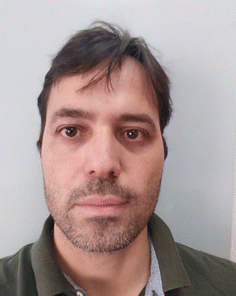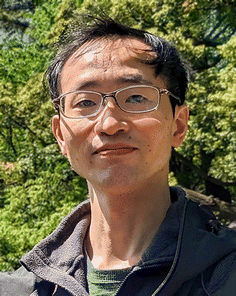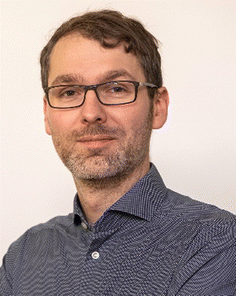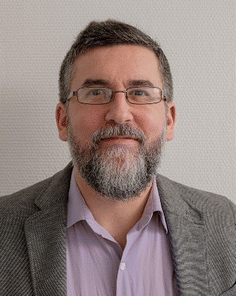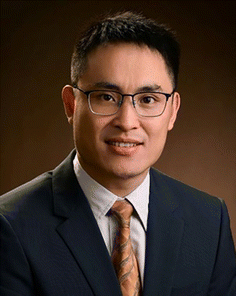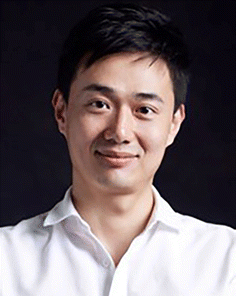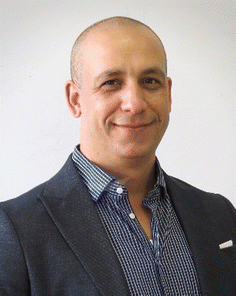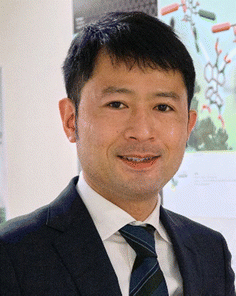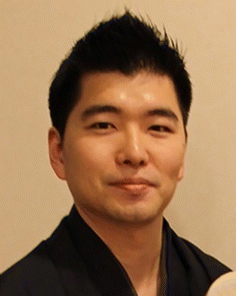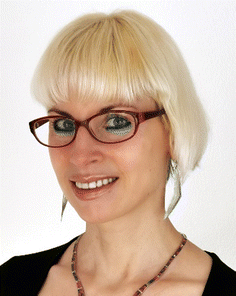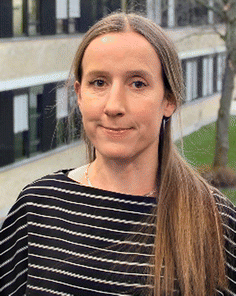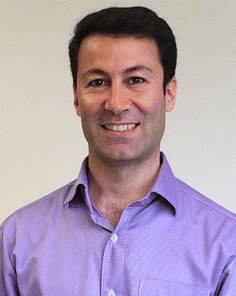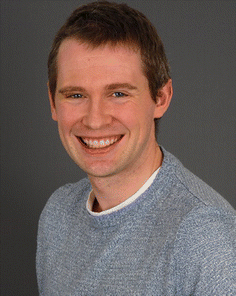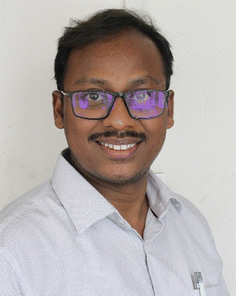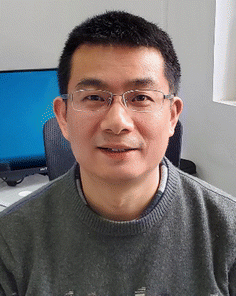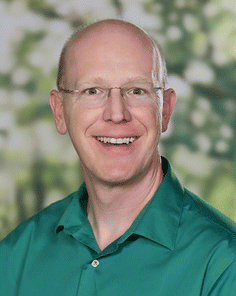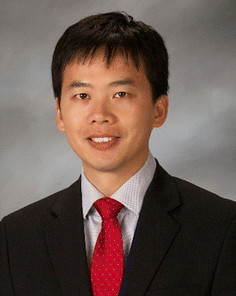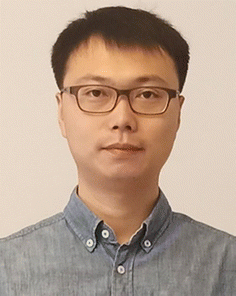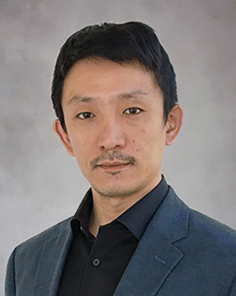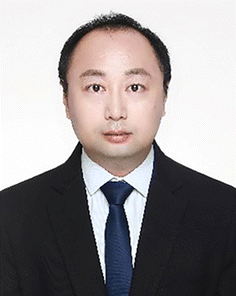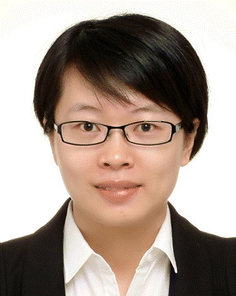DOI:
10.1039/D3CC90354K
(Profile)
Chem. Commun., 2023,
59, 13387-13393
Contributors to the Pioneering Investigators collection 2023: Part 2
Ryan Altman received a BSChem from Creighton University and a PhD in organic chemistry from MIT with Professor Stephen Buchwald. After completing postdoctoral studies with Professor Larry Overman at UC Irvine, he joined the Department of Medicinal Chemistry at The University of Kansas. Currently he is a full professor at Purdue University in the Department of Medicinal Chemistry and Molecular Pharmacology and the Department of Chemistry. The Altman group works at the interface of synthetic organic and medicinal chemistries, with emphases in the areas of organometallic and organofluorine transformations, and medicinal interests including pain, anxiety and mood disorders, and aging.
Massimiliano Delferro is the group leader of the Catalysis Science Program in the Chemical Sciences and Engineering Division at Argonne National Laboratory and the deputy director of the “Institute for Cooperative Upcycling of Plastics” (iCOUP), an Energy Frontier Research Center funded by the U.S. Department of Energy (DOE). He obtained his PhD in chemistry from the University of Parma, Italy in 2008 under the supervision of Prof. Daniele Cauzzi. He then joined the group of Prof. Tobin Marks at Northwestern University, first as a postdoctoral fellow, then as a research professor of chemistry. His work focuses on the chemical recycling of plastics waste and the development of earth-abundant catalysts for upgrading shale gas.
Suwei Dong received his PhD degree from Boston University in 2010, and then joined Memorial Sloan-Kettering Cancer Center as a postdoctoral scholar working on the chemical synthesis of therapeutic polypeptides and glycoproteins. In 2013, he joined the School of Pharmaceutical Sciences at Peking University, and is now an associate professor and the director of the Chemical Biology Department. The major research interests of his group focus on studying glycan functions through homogeneous glycoproteins obtained
via chemical synthesis.
Arnab Dutta received his PhD degree from Arizona State University under the supervision of Prof. Anne K. Jones. Next, he shifted to Pacific Northwest National Laboratory (PNNL) for post-doctoral research to work with Dr Wendy J. Shaw. Arnab started his independent research career at IIT Gandhinagar in 2015 before shifting to IIT Bombay in 2020. Currently, his group is developing enzyme-inspired synthetic complexes that are active for various small molecule activation reactions such as H
2 production, water oxidation, O
2 reduction, and CO
2 reduction.
Daniel Globisch is an associate professor in the Department of Chemistry at Uppsala University (Sweden). His PhD degree in organic chemistry was awarded from the Ludwig-Maximilian-University Munich (Germany) with Professor Thomas Carell (2007–2011). Dr Globisch joined the Chemical Biology laboratory of Professor Kim D. Janda at The Scripps Research Institute (TSRI) in La Jolla, (CA/USA) for his postdoctoral research (2011–2015). He started his independent research group in Sweden and was awarded with a SciLifeLab Fellow-grant (2015). His laboratory's focus lies on the development of chemical biology tools to enhance the scope of metabolomics to elucidate the metabolic exchange between microbiota and humans.
Philipp Heretsch was born in Lippstadt, Germany, in 1982. He obtained his PhD degree from Universität Leipzig (supervisor: A. Giannis) in 2009. After a postdoctoral stay with K. C. Nicolaou at The Scripps Research Institute, La Jolla, California, and at Rice University, Houston, Texas, he was appointed assistant professor at Freie Universität Berlin in 2015. Since 2022, he has been a full professor at Leibniz Universität Hannover. Philipp Heretsch has been working on the total synthesis of natural products since the beginning of his career. His group is now pursuing framework reconstruction strategies for the synthesis of terpenoids and alkaloids, guided by biosynthetic hypotheses.
Shuzo Hirata is currently working as an associate professor at The University of Electro-Communications, Japan. He completed his PhD at the Tokyo University of Agriculture and Technology, Japan in 2009. He pursued postdoctoral work at Kyushu University, Japan, under the supervision of professor Chihaya Adachi. Since 2012, he has worked as an assistant professor under the group of Professor Martin Vacha of the Tokyo Institute of Technology, Japan. In 2018, he started his current independent career. His group focuses on the management of long-lived excited states for photonics and optoelectronics applications.
Ilich A. Ibarra completed a BSc in chemistry at UAM, Mexico in 2005. Later, in 2010 he obtained his PhD in chemistry under the supervision of Prof. Martin Schröder at The University of Nottingham (UK). He then took a postdoctoral position, 2010–2012, at The University of Texas at Austin (USA) where he worked under the supervision Prof. Simon Humphrey. Then, in 2013, he was awarded a Wenner-Gren researcher position at Stockholm University (Sweden) under the supervision of Prof. Xiaodong Zou. In 2014, he moved to UNAM working as an assistant professor. In 2017, he was promoted to associate professor.
Anukul Jana grew up in Krishna Khayratibar/Sabajput village in Contai, Purba Medinipur, West Bengal, India. After completing his BSc at RKMV Belur, MSc at IIT Kanpur, PhD at the University of Göttingen, first postdoctoral research at LMU Munich, and second postdoctoral research at Saarland University, he joined TCIS/TIFR Hyderabad, Ranga Reddy, Telangana, India in 2014. Presently, he has been working as an associate professor. His research interests encompass the synthesis of compounds with potential applications in catalysis and materials. His research journey is inspired by his father, who was engaged in jaggery (khejur gur) making and farming. His dream of research is driven by generous intramural research support, complementary research collaborators, and in-house trained, motivated researchers.
Igor D. Jurberg obtained his PhD from École Polytechnique, France, working under the supervision of Profs. Fabien Gagosz and Samir Zard. Then, he had two postdoctoral appointments; one at the Max Planck Institute for Coal Research, Germany, working with Prof. Nuno Maulide; and a second appointment at the Institute of Chemical Research of Catalonia, Spain, working with Prof. Paolo Melchiorre. In 2013, Igor came back to his native country, Brazil, and started his independent career at the University of Campinas. Currently, Igor is an associate professor there working in the fields of visible light-mediated transformations and heterocyclic chemistry.
Hirokazu Kobayashi received his PhD degree from the Tokyo Institute of Technology in 2009. Then, he moved to the Catalysis Research Centre, which later became the Institute for Catalysis, at Hokkaido University as an assistant professor. Since 2022, he has been appointed as an associate professor at Komaba Institute for Science, The University of Tokyo. His research interest is in catalysis to establish a sustainable chemical industry. He has studied the depolymerization of cellulose and chitin using carbon catalysts with weak acid sites. He is also willing to develop the selective catalytic oxidation of alkanes.
Robert Langer studied chemistry at the MLU Halle-Wittenberg and at the University of Karlsruhe (TH). After his PhD studies in the group of Prof. Fenske in Karlsruhe in 2009, he joined the laboratory of Prof. Milstein at the Weizmann Institute of Science in Israel as a postdoctoral fellow, working on iron pincer-type complexes for the hydrogenation of carbonyl compounds. In 2011 he joined the Philipps-Universität Marburg as an independent group leader, with the focus on rational catalyst design for reactions involving dihydrogen. Since 2020 he has been a professor of inorganic chemistry at the MLU Halle-Wittenberg. In 2017 he received the ADUC award of the German Chemical Society for his research on boron-based ligands.
David Lebœuf obtained his PhD in organic chemistry under the supervision of Prof. Max Malacria at the Université Pierre and Marie Curie in 2009. After completing two postdoctoral works at the University of Rochester with Prof. Alison J. Frontier (2010–2012) and at the ICIQ with Prof. Antonio M. Echavarren (2012–2013), he was appointed CNRS researcher at the Université Paris-Saclay in 2013. In 2019, he joined the Institut de Science et d’Ingénierie Supramoléculaires (Université de Strasbourg), where his research interests focus on the application of supramolecular chemistry to catalysis, notably cultivating the use of hexafluoroisopropanol in synthesis.
Gongping Liu is a professor of chemical engineering at Nanjing Tech University, China. He received his PhD degree in chemical engineering in 2013 from Nanjing Tech University under the supervision of Prof. Wanqin Jin and Prof. Nanping Xu. He undertook a postdoctoral position in Bill Koros’ group at Georgia Tech during 2015–2017. His research focuses on membranes for molecular separation. His work led to 160 papers, including publications in
Science and
Nature Materials, 3 monographs and 31 patents. He is on the editorial board of Journal of Membrane Science, and was the recipient of the NAMS Young Membrane Scientist Award in 2018.
Qi Lu is an associate professor at Tsinghua University in China. Prior to joining Tsinghua University, he served as a postdoctoral researcher at both Columbia University and the University of Delaware, where he also earned his PhD. His research group is dedicated to addressing critical global challenges in (electro)chemical catalysis, renewable energy storage and utilization, and environmental stewardship. Their approach combines first-principles-based calculations with precise experimental modeling. This synergy allows them to explore and pinpoint the optimal material interfaces for desired reactions. Building on this foundational knowledge, they design, develop, and characterize high-performance materials and reactors suitable for practical applications.
Norman Metanis completed his PhD in 2008 in a joint program between the Technion-Israel Institute of Technology and Scripps Research Institute, La Jolla (with Prof. Ehud Keinan and Prof. Philip Dawson). After a postdoc at ETH Zurich (with Prof. Donald Hilvert), he joined the Institute of Chemistry, the Hebrew University of Jerusalem, as assistant professor in 2013, and was promoted to associate professor in 2018. He received The Miklós Bondanszky Award in 2018, the Israel Chemical Society-Young Investigator Award in 2020, the Sir Zelman Cowen Universities Fund Prize in 2021, and The NCK Prize for Outstanding Young Medicinal Chemist by the Israel Chemical Society in 2022.
Takahiro Muraoka gained his PhD in 2007 from The University of Tokyo under the supervision of Prof. Takuzo Aida. This was followed up by a postdoctoral position in the group of Prof. Samuel I. Stupp (Northwestern University). He commenced his independent career at Tokyo University of Agriculture and Technology and was promoted to professor in 2020. His general research interests lie in the development of stimuli-responsive molecules functioning in biological media, with current focuses on the development of membrane-deforming molecules, artificial extracellular matrices, and protein-folding promoters.
Keiji Numata is currently a full professor in the Department of Material Chemistry, Kyoto University; team leader in the Biomacromolecules Research Team, RIKEN Center for Sustainable Resource Science; and project professor at the Institute for Advanced Biosciences, Keio University, Japan. He is also the research director for JST-ERATO Numata Organellar Reaction Cluster Project, research director for JST-COI-NEXT, and research director for MEXT Program: Data Creation and Utilization-Type Material Research and Development Project. He investigates biosynthesis and material design of structural proteins and polypeptide. Dr Numata has received numerous awards for his work and is currently an associate editor of
ACS Biomaterials Science and Engineering.
Greta R. Patzke received her PhD from the University of Hannover and her
Venia Legendi from ETH Zurich. She then moved to the University of Zurich, where she was promoted to full professor in 2016. Her research interests include the synthesis and monitoring of nanomaterials for environmental applications, together with the catalytic properties and biomedical applications of polyoxometalates. She is project leader of the UZH Research Priority Program “Light to Chemical Energy Conversion”, where her group investigates a wide range of molecular, nanostructured and solid-state transition metal-based catalysts for water oxidation with special emphasis on their mechanistic understanding.
Katrine Qvortrup completed her PhD at the University of Copenhagen (Denmark) in 2012. After a postdoctoral stay at Princeton University (USA) and Cambridge University (UK), she started her independent career in 2017 at the Technical University of Denmark. In the Qvortrup lab, they combine tools from chemistry and biology to the study and manipulation of biological systems. The aims are to develop novel (bio)chemical methods and to provide molecular-level insight into biochemical pathways. She is interested in understanding health and disease mechanisms and utilizing this knowledge in the development of new and improved treatment strategies.
Farshid Ramezanipour is an associate professor of chemistry at the University of Louisville (UofL). He is a recipient of the NSF CAREER Award, and was named an Ascending Star Fellow by UofL, and a Scialog Fellow in Advanced Energy Storage by the Research Corporation for Science Advancement. He received his PhD from McMaster University (2011), followed by a postdoctoral fellowship at the University of Calgary (2011–2013) and an NSERC postdoctoral fellowship at the University of California, Berkeley (2013–2015). His current research involves design and synthesis of multi-metal oxide systems for electrocatalysis and energy conversion/storage. Examples include the design of electrocatalysts for water-splitting, pseudocapacitors, and solid lithium-ion conductors.
After completing his PhD in Oxford, William Unsworth moved to his current institution, the University of York; first as a postdoctoral research associate in the group of Prof. Richard Taylor, before moving onto a Research and Teaching Fellowship in 2013. In 2016, he started his independent career as a Leverhulme Trust early career fellow, and then later as holder of the inaugural Eleanor Dodson Fellowship. He is now a senior lecturer in organic chemistry. His current research interests include ring-expansion approaches for the synthesis of medium-sized rings and macrocycles, catalyst selective synthesis and biocatalysis. Will has won several prizes for his research, most notably the RSC Hickinbottom Award for his work on the synthesis of spirocycles and macrocycles.
Chandra Volla received his MSc from the University of Hyderabad in 2005 and obtained his PhD from EPFL, Switzerland working under Prof. Pierre Vogel in 2009. In 2010, he joined the group of Prof. Magnus Rueping at RWTH Aachen, Germany as a postdoctoral fellow. After two and half years in Germany, he moved to Stockholm University, Sweden to pursue postdoctoral studies with Prof. Jan.-E. Backvall. In 2014, he joined the department of chemistry, IIT Bombay as an assistant professor, and was promoted to full professor in August 2023. His research interests include the study and development of different activation modes in metal catalysis and organocatalysis, and their application in dual catalysis.
Huadong Wang received his BS from Peking University in 2000 and his PhD in 2005 from Texas A&M University under the supervision of François Gabbaï. He then joined the group of Gerhard Erker at the University of Münster as an Alexander von Humboldt fellow. In 2009, he joined the Department of Chemistry at Fudan University (Shanghai, China) as an associate professor and was promoted to full professor in 2015. His research interests concern the synthesis of electrophilic organoboranes and their application in small molecule activation and catalysis.
Travis Williams is a professor of chemistry at the University of Southern California. He received his PhD from Stanford with Paul Wender in 2005 and was a postdoctoral fellow at Caltech with John Bercaw before coming to USC in 2007. Travis solves problems ranging from energy to plastics and sustainable manufacturing. His cleantech startups, Catapower and Closed Composites, are involved in fine chemicals and thermoset recycling, respectively. Travis has received the NIH National Research Service Award, the NSF CAREER and BRITE Awards, the Breakthrough Energy Ventures Climate Change Prize, and a US DOE Hydrogen Technology of the Year Award.
Xiaohu Xia is currently an associate professor in the chemistry department at University of Central Florida (UCF). He holds a joint appointment in the NanoScience Technology Center at UCF. Prior to his appointment at UCF, he worked at Michigan Technological University as an assistant professor during 2014–2018. He received his PhD degree in 2011 from Xiamen University, China. He worked at Washington University in St. Louis as a visiting graduate student from 2009 to 2011 and at Georgia Tech as a postdoctoral fellow from 2012 to 2014. His current research interests include materials chemistry, nano-science/technology, and medical diagnostics.
Yuxi Xu received his BS degree from Wuhan University (2007) and PhD degree from Tsinghua University (2011). He then worked as a postdoctoral fellow at University of Washington, Seattle and University of California, Los Angeles. He joined the faculty of Fudan University in July of 2015 and moved to Westlake University in April of 2019. His research interests include chemically modified graphene, 2D polymers, and self-assembled functional materials with applications in energy, catalysis and environmental sustainability.
Yang Yang obtained his PhD from Tsinghua University in 2010. From 2010 to 2012 he was supported by the Alexander von Humboldt Postdoctoral Fellowship and worked at the University of Erlangen-Nuremberg, Germany. From 2012 to 2015 he was supported by the Peter M. & Ruth L. Nicholas Postdoctoral Fellowship and worked at the Richard E. Smalley Institute for Nanoscale Sci. & Tech., Rice University. Since 2015 he has been a principal investigator at the University of Central Florida. His current research interests cover surface and interface engineering of energy materials, clean energy generation and storage devices, and programmable nanomanufacturing.
Fabiao Yu received his master's degree from Shandong Normal University in 2009, then was awarded his PhD degree from Dalian University of Technology and Dalian Institute of Chemical Physics, Chinese Academy of Sciences (CAS) in 2013. After four years’ work at Yantai Institute of Coastal Zone Research, CAS as an associate professor, he joined Hainan Medical University from 2018 as a full professor. He is currently the director of the Engineering Research Center for Hainan Bio-Smart Materials and Bio-Medical Devices. His research interests focus on biofunctional materials, molecular diagnosis of tropical diseases, multi-modal visual surgery navigation, and point-of-care testing (POCT) technology.
Dan Yuan obtained her PhD degree in 2012 from National University of Singapore (NUS) under the supervision of Professor Han Vinh Huynh, and worked on the chemistry of N-heterocyclic carbene ligands. After working as a research assistant at NUS for one year, she joined Soochow University as an assistant professor in 2013. Her research interests include the development of rare-earth metal complexes and their applications in the preparation of biodegradable polymers through (co)polymerization of cyclic esters and ethers.
|
| This journal is © The Royal Society of Chemistry 2023 |
Click here to see how this site uses Cookies. View our privacy policy here. 
